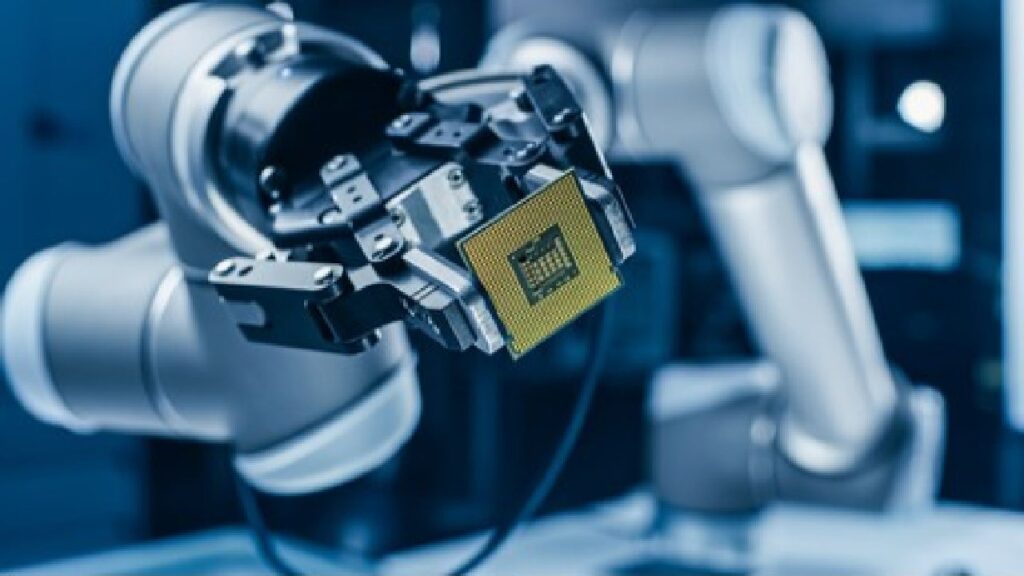Robotics, or robotic process automation (RPA), is the application of technology that allows a company’s employees to configure computer software, or a “robot,” to capture and interpret existing applications for processing a transaction, manipulating data, triggering responses and communicating with other digital systems. Automation is key to improving robotics productivity. As countries and businesses attempt to recover from the pandemic, interest in robotics will increase.

Robotics is a fast-growing industry. According to GlobalData forecasts, it will have grown at a compound annual growth rate (CAGR) of 28% during 2021-2030. GlobalData expects every segment of the robotics market to grow over the next decade. Industrial robots will function as a growth engine as innovation in the segment will spread to other areas.
However, not all companies are equal when it comes to their capabilities and investments in the key themes that matter most to their industry. Understanding how companies are positioned and ranked in the most important themes can be a leading indicator of their future earnings potential and relative competitive position.
According to the GlobalData thematic research report, Roboticsmajor adopters include: ABB, Fanuc, Kawasaki, Midea (Kuka), Rockwell Automation, Teradyne and Yaskawa.
Overview of top-ranked companies
Teradyne
Teradyne manufactures automation equipment for testing semiconductor and industrial applications, counting Qualcomm, Samsung and IBM among its customers for automatic test systems. In 2015, it acquired Co-Bot Pioneer Universal Robots for $285 million. Universal Robot’s safe, easily programmable and versatile six-axis robots, had established a strong leadership position in the nascent Co-bot market, and the acquisition gave Teradyne a strong position in a rapidly growing market . Teradyne continued to expand its industrial automation business with the purchases of Energid and Mir in 2018. With a historic presence in semiconductors and industrial applications, Teradyne has gained its way into the industrial co-bot market and is now a key player.
Fanuc
Fanuc is one of the world’s largest manufacturers of industrial robots. It has a production capacity of 11,000 units, and in 2021 it produced its 750,000th robot. The company’s sales were initially affected by the Covid-19 pandemic but quickly rebounded. Fanuc uses sensors, analytics and the cloud to provide continuous service to its customers by anticipating equipment and processing issues and arranging automatic part replacement. The company is working closely with Cisco, Rockwell Automation and Japanese startup Preferred Networks to provide and improve this service, which began as a pilot project in 2014 involving GM factories. Like all its peers, Fanuc has developed co-bots and can become a force in this segment (the co-bot maker acquired Life Robotics in February 2018). Until 2015, Fanuc, operating from its Mount Fuji base, was just about the most secretive company in the world. However, spurred by activist investor Dan Loeb and pressured by the Japanese government to become more user-friendly, Fanuc opened its doors. Fanuc faces two medium-term threats: one from Chinese rivals ESTUN and Siasun, and the other from cloud robotics provided by Amazon, Alibaba, Google and IBM.

To better understand the key themes and technologies to disrupt the technology industry, access GlobalData’s latest thematic research report on Robotics.
- Microsoft
- Abb
- Siemens
- Ge
- Alphabet
- Rockwell Automation
- Aveva
- Amazon
- Cognex
- Cisco
- Emerson Electric
- Tata Consulting Services
- Hitachi
- Ericson
- Ocado
- Emphasis
- SAP
- Stryker
- Wipro
- Sony
- Intuitive surgical
- Capgemini
- Kuka
- Nokia
- Harmonic drive
- Alibaba
- Oracle
- Roper Technologies
- Electric Yokogawa
- PTC





